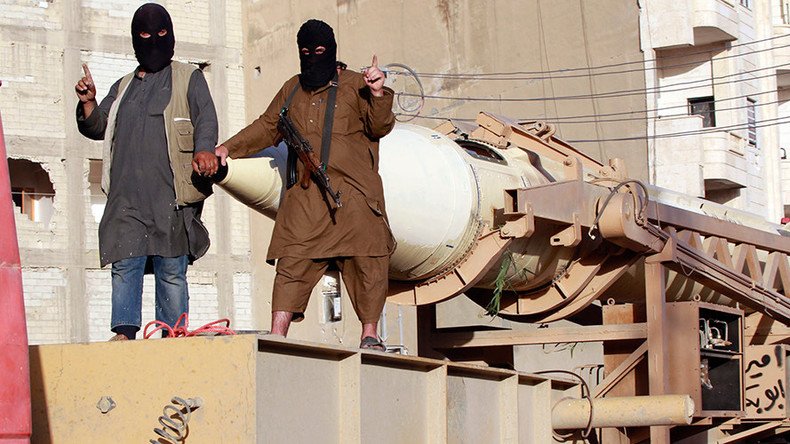ISIS wants to launch chemical or nuclear attacks – EU/NATO security chiefs

NATO and EU security chiefs say Islamic State (IS, formerly ISIS/ISIL) wants to use chemical or nuclear weapons to attack Britain.
During the Security and Counter Terror conference in London on Tuesday and Wednesday, a group of policing and counter terrorism experts delivered a dire warning.
Jorge Berto Silva, the European Commission’s deputy chief of counter-terrorism, told the Telegraph that “with CBRN [chemical, biological, radioactive and nuclear materials], there is a justified concern.”
His view was shared by Dr Jamie Shea, NATO’s deputy head of emerging threats, who told the conference “we know terrorists are trying to acquire these substances.”
Shea also warned the Islamist group may be splitting into two with a Syria and Iraq-based ‘state’ and a network of terror cells in Europe.
Securing Britain
Their comments come as police authorities unveil plans to train a million UK workers to deal with terror attacks over the next 12 months. A group of former security officials have also launched an initiative to examine Britain’s borders.
The National Police Chiefs Council (NPCC) wants to see the number of workers trained to respond to terrorist incidents increased from its current rate of 100,000 employees per year.
Detective Chief Superintendent Scott Wilson, police counter-terrorism coordinator, is expected to announce the expansion of Project Griffin in the near future.
He told the BBC “we need everyone to play a part in keeping the public alert, not alarmed.”
In an open letter to the Telegraph, two former Metropolitan Police commanders, MPs and a former head of counter-terrorism command said that regardless of whether Britain leaves the EU or not, intelligence sharing and border control must be taken seriously.
They said recent terror attacks in Europe were a “wake-up call for the British government over the need better to secure this country’s borders.”
Questions have been raised about the UK’s vulnerability to attack, not least to its nuclear arsenal.
In February, RT spoke to a Royal Navy whistleblower who leaked a report on, among other things, the potential ease of access to nuclear facilities.
Nuclear submarine engineer William McNeilly, who was kicked out of the service for his revelations, said: “I didn’t release my report to discredit the Royal Navy. I released my report because safety and security [at the Trident base] is not being taken seriously. Because it’s a risk to the people and a risk to the land.”













